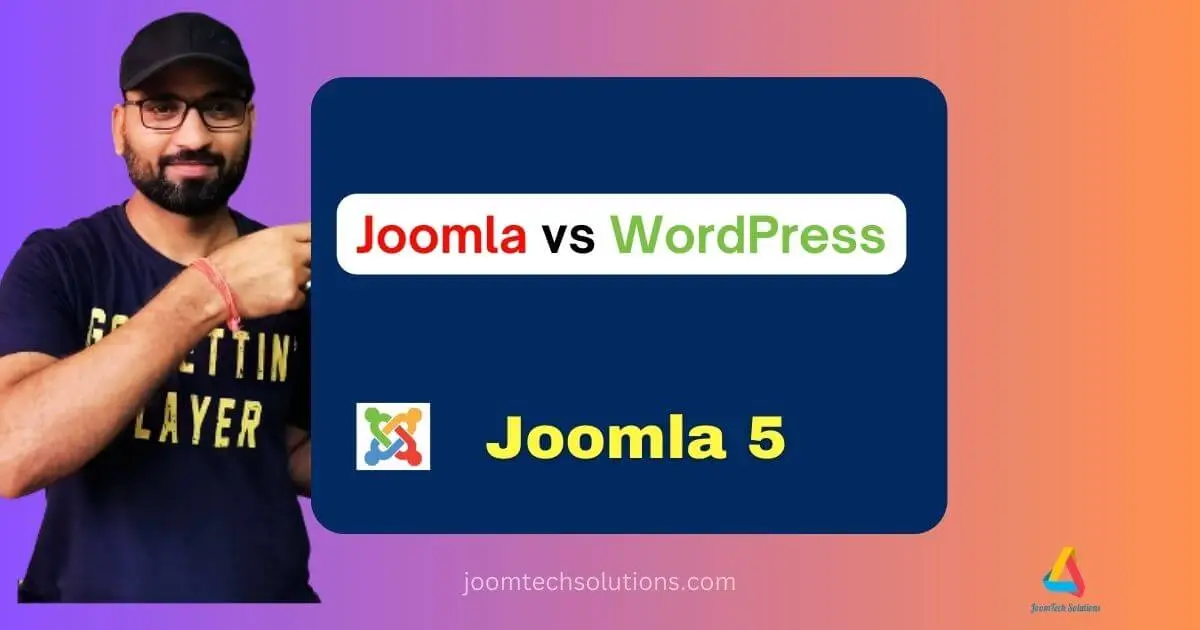In the ever-evolving world of content management systems (CMS), Joomla and WordPress are two of the most popular platforms. Both are powerful tools for creating websites, but they cater to different needs and audiences. If you’re wondering which one is the right fit for your project, this detailed comparison will help you decide.
What Are Joomla and WordPress?
Before diving into the comparison, it’s important to understand what Joomla and WordPress are and what they offer.
Joomla
Joomla is an open-source CMS known for its flexibility and scalability. It’s particularly popular among developers and advanced users who need more control over their websites. With Joomla, you can build anything from small business websites to complex online portals.
WordPress
WordPress, on the other hand, started as a blogging platform and has evolved into a versatile CMS. It’s user-friendly and highly customizable, making it the go-to choice for beginners and small to medium-sized businesses.
Key Differences Between Joomla and WordPress
Ease of Use
- WordPress: Designed with beginners in mind, WordPress is incredibly easy to use. Its intuitive dashboard allows users to manage content, themes, and plugins effortlessly. Even non-technical users can create a professional-looking website.
- Joomla: While Joomla offers more advanced features, its learning curve is steeper. It’s ideal for users who have some technical knowledge or are willing to invest time in learning the platform.
Customization Options
- WordPress: With thousands of themes and plugins, WordPress provides endless customization possibilities. Whether you want a simple blog or a complex e-commerce site, you’ll find plugins to suit your needs.
- Joomla: Joomla also offers extensive customization options, but its extension library is smaller compared to WordPress. However, Joomla’s flexibility allows for more granular control over your site’s functionality.
SEO Capabilities
- WordPress: Known for its SEO-friendly structure, WordPress makes it easy to optimize your site for search engines. Plugins like Yoast SEO and All in One SEO further simplify the process.
- Joomla: Joomla also has robust SEO capabilities, but setting them up requires more manual effort. Advanced users may find Joomla’s SEO tools more customizable.
Security
- WordPress: Due to its popularity, WordPress is a frequent target for hackers. However, regular updates and security plugins can help mitigate risks.
- Joomla: Joomla is considered more secure out of the box. It has built-in security features like two-factor authentication and access control levels.
Community Support
- WordPress: With a massive global community, WordPress users have access to countless tutorials, forums, and resources.
- Joomla: Joomla also has a dedicated community, but it’s smaller compared to WordPress. That said, Joomla’s forums are highly active and helpful.
Use Cases for Joomla and WordPress
When to Use Joomla
- Complex websites with advanced functionality
- Multi-language sites
- Portals with multiple user access levels
When to Use WordPress
- Blogs and content-focused websites
- Small business websites
- E-commerce sites with plugins like WooCommerce
Pros and Cons of Joomla and WordPress
Joomla Pros:
- Highly flexible and scalable
- Robust built-in features
- Strong multi-language support
Joomla Cons:
- Steeper learning curve
- Smaller library of extensions
WordPress Pros:
- User-friendly and beginner-friendly
- Extensive plugin and theme ecosystem
- Strong community support
WordPress Cons:
- Vulnerable to security threats
- Limited advanced features without plugins
Final Verdict: Joomla vs WordPress
Choosing between Joomla and WordPress ultimately depends on your specific needs and technical expertise. If you’re a beginner looking for an easy-to-use platform, WordPress is a great choice. However, if you need more advanced features and are willing to invest time in learning, Joomla offers unparalleled flexibility.
Both platforms are excellent in their own right, and understanding your project requirements will guide you to the right decision. Regardless of which CMS you choose, both Joomla and WordPress can help you build a successful website that meets your goals.

